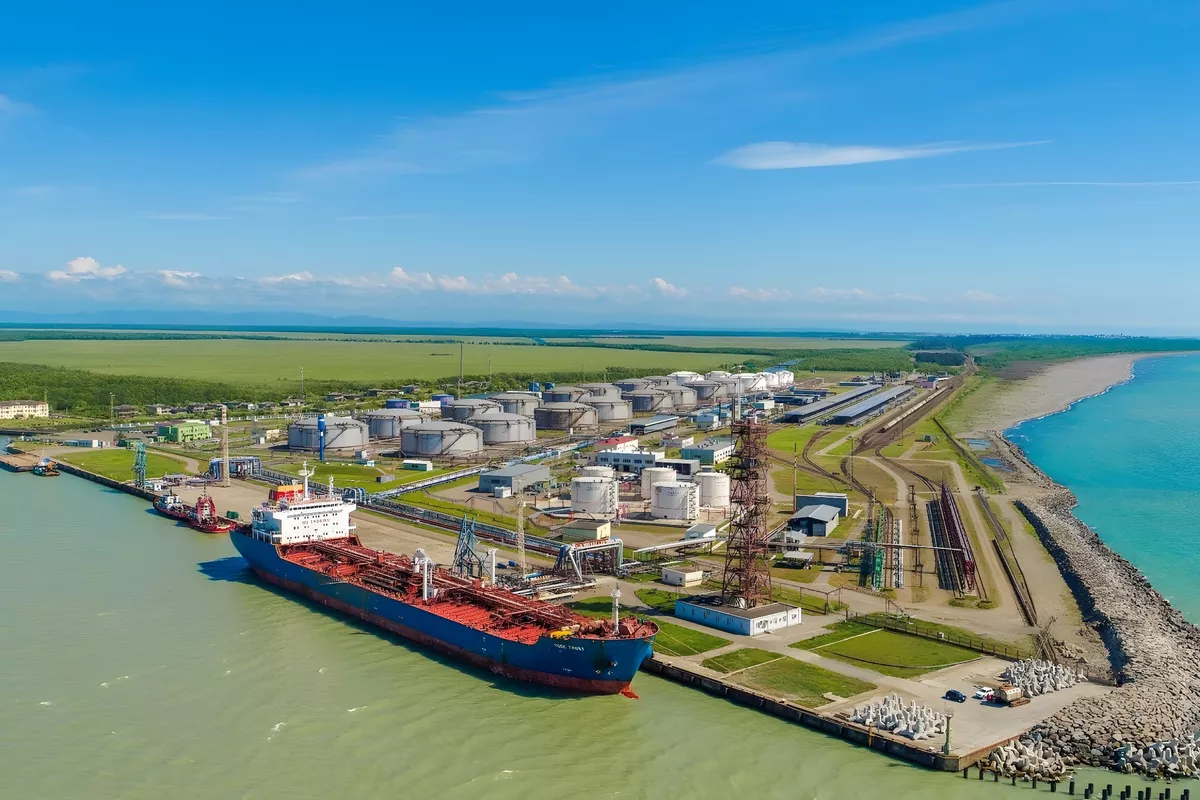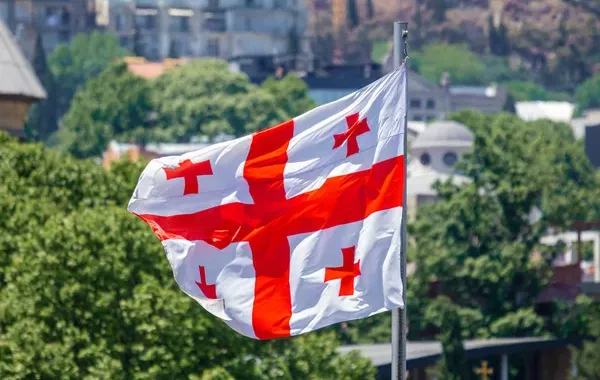
Photo: kulevioilterminal.com
Russian officials may have opened a new revenue stream to generate profits from oil exports, a move aimed at sustaining their war effort in Ukraine, The Caspian Post reports citing Eurasianet.
And it runs through Georgia.
Moscow is dealing with growing energy isolation and a wave of Ukrainian drone strikes that has crippled its oil infrastructure, reducing refining capacity by roughly 40 percent, according to a Washington Post report. Georgia is now providing a safe haven for Russian oil at a new refinery in Kulevi, situated on the shores of the Black Sea.
A tanker, the Kayseri, sailing out of the Russian port of Novorossiysk delivered over 105,000 metric tons of oil to Kulevi on October 6, according to a report published by the Reuters news agency, which cited tracking data and an industry source. A Russian company, RussNeft, reportedly organized the shipment, the Reuters report added.
RussNeft is a privately held entity that is not presently subject to sanctions, as is the state-owned entity Rosneft. Critics argue this distinction is cosmetic. RussNeft’s founder, Mikhail Gutseriev is under EU sanctions, and his family remains influential within the company. Many observers also contend that in Russia's state-controlled economy, no major business operates independently from the Kremlin.
Adding to the murkiness, independent monitors tracking Russia’s so-called “shadow fleet” of tankers have flagged the Kayseri as a suspected vessel in this opaque system.
In response to public scrutiny, Georgia’s State Revenue Service confirmed the arrival of Russian cargo but stressed that “the ship and the ship-owning company, as well as the companies sending and receiving the cargo, are not subject to international sanctions.” The agency declined to disclose the name of the receiving company, citing tax secrecy.
Other government bodies echoed the same line, emphasizing that while the cargo originated in Russia, the ship sailed under a Panamanian flag.
However, the Revenue Service added that “the cargo was unloaded at a temporary customs storage facility to undergo further customs inspection procedures.” This is the most recent publicly available information regarding the Siberian Light oil shipment that entered Georgia.
The Kulevi refinery was inaugurated a year ago with great fanfare. Prime Minister Irakli Kobakhidze and then-economy minister Levan Davitashvili hailed it as “one of the most important projects for the country’s energy security and independence.”
The facility is operated by Black Sea Petroleum, owned by Maka Asatiani, a business figure close to the ruling Georgian Dream party. Recently, an independent Russian investigative media outlet reported that Asatiani’s son is involved in business dealings with the son of the first deputy head of Russia’s military intelligence service, the GRU.
In September, ex-minister Davitashvili became chairman of the refinery’s board, a move underscoring the ruling party’s growing influence and vested interest in the project. In addition, one of the project's main backers is Cartu Bank, founded by Bidzina Ivanishvili, the billionaire impresario of Georgian Dream.
“The import of Russian oil into Georgia for processing once again highlights the [Bidzina] Ivanishvili government’s support for Russia in its war against Ukraine,” security expert and former Georgian parliament member Teona Akubardia said in an interview published by a regional news outlet, Batumelebi. “It also raises the country’s risk of future sanctions, especially as Ukraine continues legitimate strikes on Russia’s energy sector.”
The refinery began operations earlier this month with an initial processing capacity of 1.2 million tons of oil per year (around 24,000 barrels per day) and plans to expand to 4 million tons by 2028, serving both domestic and export markets.
Since fighting a five-day war in 2008, Russia and Georgia have had no formal diplomatic ties. Yet under Georgian Dream, Tbilisi’s economic links with Moscow have deepened while relations with the United States and European Union have gone into a deep freeze. In 2024, Georgiasourced roughly 40 percent of its oil products from Russia.
Political expert Gia Khukhashvili in an interview with RFERL, accused the Georgian Dream government of pursuing a “collaborationist policy” with the Kremlin.
The United States only recently imposed major sanctions on Rosneft and Lukoil, Russia’s two largest oil companies. India and China, Russia’s top oil buyers, reportedly paused imports, wary of secondary sanctions. Against this backdrop, Georgia’s new refinery could become a small, sanction-free outlet for Russian oil, though its impact on Moscow’s exports remains uncertain.
Georgian Dream leaders have long sought to justify their geopolitical turn away from the West by claiming without evidence that Washington and Brussels were intent on using Georgia to open a ‘second front’ against Russia in the Ukraine war.
But Georgian Dream’s evident tolerance of the acceptance of a Russian oil shipment at Kulevi would appear to do more than any other single development in the country since 2022 to potentially entangle Georgia in the war.
Share on social media
